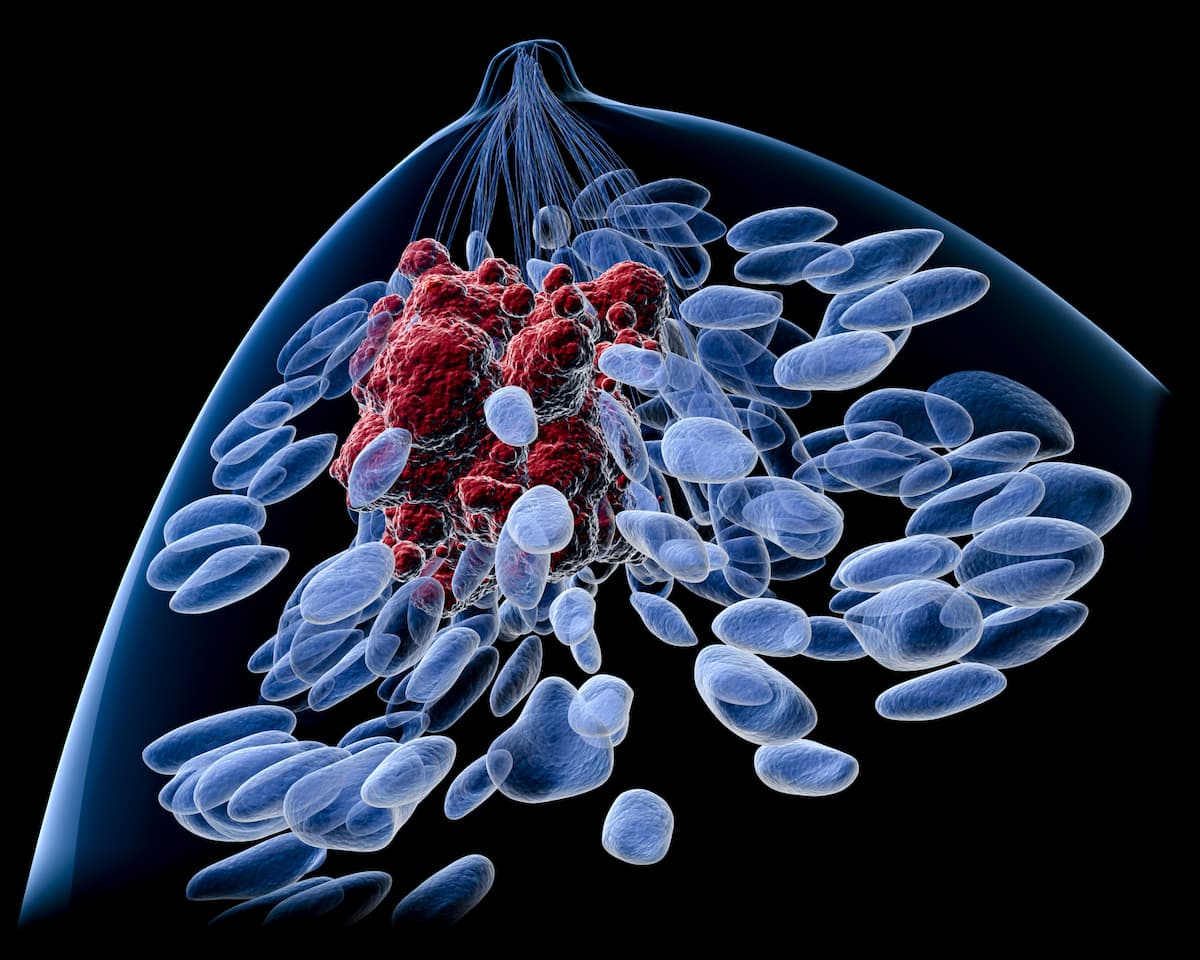High Immunoglobulin Expression Shows Long-Term Survival in Breast Cancer
Data support the IGG signature, especially its key gene subset, as a potential marker of sustained antitumor activity in breast cancer.
"Notably, high IGG expression, previously linked to reduced distant metastasis and extended survival, emerges as a reliable marker for extended longevity, signifying its role in sustaining antitumor immunity in survivors of breast cancer, and potentially other cancer types," according to the study authors.

Use of a 14-gene B-cell/immunoglobulin (IGG) signature showed that high IGG signature expression significantly correlated with reduced mortality risks among survivors of breast cancer, according to findings from a study published in ESMO Open.1
Based on long-term follow-up data collected from 9638 patients with early-stage breast cancer, investigators reported a significant association between IGG expression and overall survival (OS) regardless of breast cancer subtype, tumor stage, or nodal status. This correlation persisted even when assessing patients with a very low risk of relapse or those with more than 5 years of follow-up without a documented relapse.
The IGG signature significantly correlated with OS without a relapse in patients between the ages of 41 and 70 years old at diagnosis. Additionally, IGG signature expression tended to be higher in patients with HER2-positive disease or triple-negative breast cancer (TNBC) compared with those who had hormone receptor (HR)–positive and HER2-negative disease.
Prior reports showed that the IGG signature correlated with OS in cervical cancer, head and neck cancer, lung adenocarcinoma, melanoma, and sarcoma.2 Furthermore, a combined patient-level meta-analysis highlighted that the relationship between the IGG signature and OS was independent of cancer relapse; this finding was consistent across all cancer types apart from cervical cancer (HR, 0.68; 95% CI, 0.61-0.75; P <.001).
“Notably, high IGG expression, previously linked to reduced distant metastasis and extended survival, emerges as a reliable marker for extended longevity, signifying its role in sustaining antitumor immunity in survivors of breast cancer, and potentially other cancer types,” Laura Angelats, of the Translational Genomics and Targeted Therapies in Solid Tumors Group at August Pi i Sunyer Biomedical Research Institute (IDIBAPS); Institute of Cancer and Blood Diseases in the Hospital Clinic of Barcelona; and Department of Medicine at the University of Barcelona, wrote with coauthors.1 “Our findings not only contribute to the evolving landscape of prognostic markers in breast cancer but also provide nuanced insights into the relationship between immune gene expression in tumors and longevity, paving the way for more personalized and effective therapeutic strategies that account for both recurrence and long-term outcomes.”
The study assessed the association between an antitumor immune response measured via a 14-gene B-cell/IGG signature and mortality risk among 9638 patients with breast cancer across 3 datasets. Investigators evaluated data from 1133 patients in the Molecular Taxonomy of Breast Cancer International Consortium (METABRIC), 4470 patients in the Sweden Cancerome Analysis Network (SCAN-B), and 936 patients with breast cancer in The Cancer Genome Atlas (TCGA) sets.
Investigators collected 132 formalin-fixed paraffin-embedded samples from patients with early-stage breast cancer to evaluate the immune component of breast cancers with various levels of IGG signature. Additionally, the IGG signature expression was characterized with spatial GeoMx profiling and single-cell RNA sequencing. The study also assessed the predictive value of each of the 14 IGG genes for B-cell receptor (BCR) and T-cell receptor (TCR) clonality and longevity.
Additional findings showed that a higher polyclonality of B cells and T cells occurred in IGG-high tumors vs cancers harboring low or medium IGG expression. A specific set of 7 genes—TNFRSF17, IL2RG, POU2AF1, CD27, IGJ, CD79A, and PIM2—showed a significant association with BCR and TCR clonality.
According to the study authors, observed death events may be associated with undetected recurrences, which introduces some uncertainty. Regarding other potential limitations, the cause of death was inaccessible in the evaluated datasets, which also had differing follow-up times.
References
- Angelats L, Paré L, Rubio-Perez C, et al. Linking tumor immune infiltration to enhanced longevity in recurrence-free breast cancer. ESMO Open. 2025;10(1):104109. doi:10.1016/j.esmoop.2024.104109.
- Schettini F, Brunet LP, Marín M, et al. 14-gene immunoglobulin (IGG) and proliferation signatures and association with overall survival across cancer-types. J Clin Oncol. 2022;40(suppl 16):2636. doi:10.1200/JCO.2022.40.16_suppl.2636